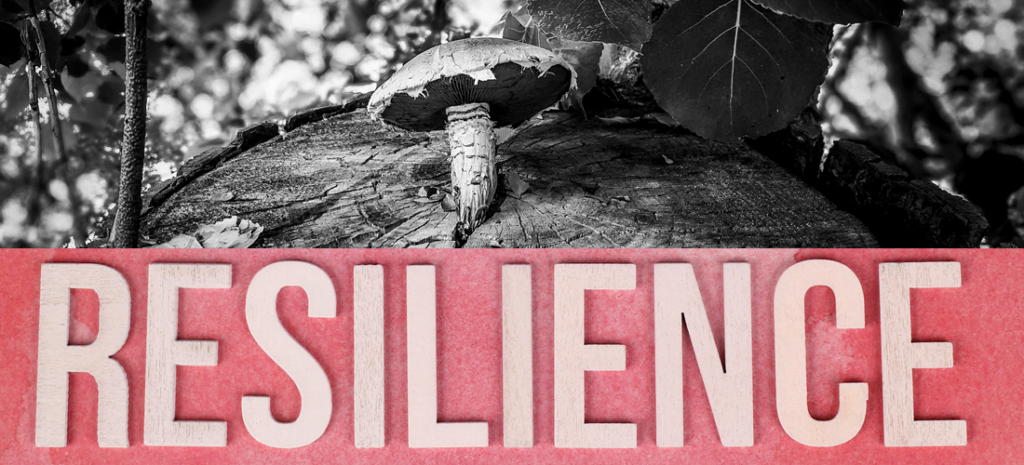Solitude often carries a negative connotation in our society, and people frequently equate it with loneliness. However, solitude provides a unique opportunity to cultivate self-compassion, a trait often overlooked but essential for personal growth and happiness. In this blog post, we will explore the beautiful interaction between solitude and self-compassion, revealing how one can leverage moments of solitude to deepen self-understanding, foster self-love, and ultimately exercise greater compassion towards oneself. Embracing solitude isn’t about isolation, but about forging a more positive and compassionate relationship with oneself.
Self-compassion: What It Is and What It Isn’t
Self-compassion is a practice of treating oneself with kindness and understanding in times of failure or pain. It is about recognizing that we, as humans, are imperfect and that making mistakes is an inherent part of the human experience. Self-compassion is not about avoiding personal responsibility or ignoring mistakes. It does not mean self-pity or wallowing in self-indulgence. Rather, it involves seeing our situations clearly and forgiving ourselves for our shortcomings while still striving for personal growth.
Self-compassion consists of three core components that work together to create a compassionate and nurturing relationship with oneself. These three components are:
Self-Kindness
This is the first pillar of self-compassion and involves treating oneself with the same warmth, care, and understanding that one would offer to a close friend in times of suffering or difficulty. It embodies the practice of being warm and understanding toward ourselves when we suffer, fail or feel inadequate. Instead of harshly criticizing ourselves for shortcomings, self-kindness implies treating oneself with the same kindness and understanding that we would offer a close friend going through a similar situation.
Through self-kindness, individuals learn to navigate the stormy seas of life with a sense of grace and ease, fostering an inner sanctuary of warmth and solitude. This compassionate attitude significantly reduces self-criticism and enhances emotional wellbeing.
Common Humanity
Common Humanity is a core component of self-compassion, anchored in the understanding that all humans suffer, make mistakes, and experience hardships. This perspective allows us to see our individual experiences as part of a larger human experience, fostering a sense of shared struggle rather than isolation and alienation. In the context of self-compassion, acknowledging our common humanity encourages us to treat ourselves with the same kindness, caring, and understanding we extend to others during difficult times. It permits us to embrace solitude not as a state of loneliness, but as a space for self-reflection and self-care. It reminds us that just as we are patient and forgiving with others, we deserve to extend that same grace unto ourselves.
Mindfulness
Mindfulness is a critical component of self-compassion, acting as a therapeutic tool that allows individuals to recognize their feelings and thoughts without judgment. By practicing mindfulness, a person learns to respond to distressing situations with a kind, caring attitude, thereby fostering self-compassion. This approach encourages a balanced awareness of emotional states, rather than over-identification with personal suffering.
Through mindfulness, we learn to observe our experiences, both positive and negative, from a place of calm detachment, which can be particularly beneficial during periods of solitude. This practice not only nurtures a healthier relationship with the self but also enhances our capacity to extend compassion to others.
These three components of self-compassion work together to create a compassionate and supportive inner dialogue. When you practice self-compassion, you treat yourself with the same kindness and understanding that you would offer to a friend, recognize that suffering is a part of the human experience, and stay mindfully present with your pain. By incorporating these elements into your self-compassion practice, you can cultivate greater resilience, self-acceptance, and overall emotional well-being.
Benefits of Practicing Self-Compassion
Practicing self-compassion offers a wide range of benefits for your mental, emotional, and even physical well-being. Here is a list of some of the key benefits of incorporating self-compassion into your life:
Increased Emotional Resilience
Increased Emotional Resilience is indeed a significant benefit of self-compassion. By cultivating a compassionate view towards oneself, individuals are better equipped to handle life’s challenges, disappointments, and failures. Rather than responding with harsh self-criticism, self-compassion allows individuals to embrace these hurdles as opportunities for growth and learning. When we afford ourselves the same kindness and understanding that we would extend to a close friend in a similar situation, we strengthen our emotional resilience. This practice of self-compassion fosters emotional equilibrium, and mitigates the impact of stress and negativity. Furthermore, time spent in solitude can enhance our self-compassion, as it provides space for reflection, introspection, and self-nurturing.
Reduced Stress and Anxiety
By cultivating self-compassion, individuals are more likely to approach their faults and failures with understanding rather than judgment, alleviating self-inflicted psychological pressure. Rather than getting caught in a spiral of negative self-talk and stress when facing life’s challenges, self-compassionate individuals have the ability to soothe themselves, accept their shortcomings, and continue forward. This acceptance creates a tranquil space of solitude where anxiety is less likely to flourish, and stress is more manageable. It’s a gentle reminder that everyone makes mistakes and that it’s okay not to be perfect. This way, self-compassion not only mitigates stress and anxiety but forms a robust foundation for resilience and emotional wellbeing.
Improved Mental Health
Practicing self-compassion can significantly contribute to improved mental health. When we nurture a sense of self-compassion, we essentially acknowledge our own human flaws and accept them without judgment, which can alleviate feelings of anxiety and depression. This positive self-acceptance can lead to enhanced emotional resilience, reducing the impact of stress on our mental well-being. Furthermore, self-compassion paves the way for constructive self-reflection during moments of solitude, allowing us to understand our emotions better, and respond to them in a healthier, more adaptive manner. This process can foster a stable, positive mental state, reinforcing the integral role of self-compassion in promoting mental health.
Enhanced Self-Esteem
Unlike self-criticism that often undermines our confidence, self-compassion allows us to embrace our flaws and recognize them as part of the shared human experience. This kind and understanding approach towards oneself fosters a healthier sense of self-worth, as it is not built on the shaky foundations of perfectionism, but rather on the acceptance of our innate human imperfections. Thus, self-compassion, by promoting acceptance and reducing self-criticism, leads to enhanced self-esteem.
Greater Emotional Regulation
When we practice self-compassion, we are more likely to approach difficult situations with openness and understanding, rather than reacting impulsively or harshly. This emotional balance cultivates a healthier state of mind, characterized by less stress, anxiety, and negative self-judgment. By nurturing self-compassion, individuals find solitude in their emotional experiences, viewing them as transient and manageable rather than overwhelming and permanent. Therefore, self-compassion is an essential tool in fostering greater emotional regulation, allowing us to navigate through life’s challenges with more resilience and understanding.
Improved Relationships
When we cultivate a sense of kindness towards ourselves, we are more likely to extend the same benevolence towards others. The ability to understand and forgive our own flaws enables us to empathize with others’ struggles, leading to deeper, more understanding relationships. Furthermore, self-compassion helps us to find solace in solitude, reducing the fear of being alone. This comfort with our own company allows us to engage in relationships not out of need, but out of a genuine desire to connect, fostering healthier, more fulfilling bonds.
Increased Motivation
Contrary to the belief that self-compassion may lead to complacency, research suggests that it can enhance motivation. When we treat ourselves with kindness and understanding, instead of harsh self-criticism, we create a safe space for growth and exploration. This nurturing environment, much like the tranquility of solitude, encourages us to face challenges head-on, not out of fear of failure, but because of our genuine desire to improve. The fear of judgment is replaced with an understanding that learning involves stumbling, and that’s okay. In this way, self-compassion becomes a powerful driver of motivation, propelling us forward on our path to personal and professional development.
Better Physical Health
Self-compassion contributes significantly to better physical health by prompting individuals to adopt healthier habits and attitudes. When we cultivate self-compassion, we recognize the importance of our wellbeing and make efforts to nurture it. This could mean prioritizing healthy food choices, integrating regular physical activity into our routine, or getting adequate sleep. By treating ourselves with kindness and understanding, we can acknowledge when we are in need of rest or care, instead of pushing ourselves to the point of exhaustion or illness. Furthermore, self-compassion can help us cope with chronic pain or disease, as it encourages a kinder inner dialogue, reducing stress and promoting a sense of tranquility. Thus, self-compassion is a critical component of a holistic approach to physical health.
Enhanced Coping Skills
At times of distress, self-compassion involves acknowledging one’s pain, recognizing that suffering is a part of the shared human experience, and handling the self kindly, rather than harshly criticizing or ignoring one’s feelings. This approach fosters a balanced mindset, paving the way for healthier responses to challenging situations. Also, with self-compassion, individuals are likely to exhibit resilience and maintain a sense of calm in solitude, leveraging this state for introspection and personal growth. By treating themselves with kindness and understanding, they are better equipped to navigate emotional turmoil and bounce back from adversity, displaying enhanced coping skills.
Increased Mindfulness
Self-compassion paves the way for increased mindfulness, a mental state achieved by focusing one’s awareness on the present moment, calmly acknowledging and accepting one’s feelings, thoughts, and bodily sensations. When we treat ourselves with kindness and understanding, we create an environment where our thoughts and emotions can be observed without judgement, and experienced without resistance. This mindful acknowledgement of our reality helps us to avoid harmful patterns of self-criticism and negative thought spirals. Instead, self-compassion allows us to confront our flaws and setbacks with an open heart and a clear mind, fostering an enhanced sense of mindfulness.
Resilience in the Face of Failure
Self-compassion embodies a gentle understanding and acceptance of one’s own shortcomings, creating a solid foundation for resilience in the face of failure. When we nurture a compassionate attitude towards ourselves, we perceive failures not as catastrophic blows, but as stepping stones in our journey of personal growth. This allows us to bounce back from setbacks more efficiently, equipped with newfound wisdom from our missteps. Moreover, cultivating self-compassion gives us the emotional space to stand alone in our solitude, embracing our flaws and building strength in our vulnerabilities. This resilience, shaped by self-compassion, becomes an invaluable asset in our pursuit of personal and professional endeavors.
Greater Life Satisfaction
By cultivating self-compassion, individuals develop a kinder, more understanding perspective toward their own failures and shortcomings. This fosters a healthier mindset that mitigates self-criticism and self-denial while promoting acceptance of one’s unique journey with its ups and downs. The result is an enhanced sense of life satisfaction as individuals learn to value their own experiences and realize that every challenge encountered contributes to their personal growth. Furthermore, self-compassion encourages periods of solitude which can be instrumental in fostering a deeper understanding of oneself, leading to a more fulfilling life.
Practicing self-compassion is a powerful tool for promoting mental and emotional well-being, improving relationships, and enhancing overall life satisfaction. It equips you with the inner resources to navigate life’s challenges with greater resilience and kindness, ultimately leading to a happier and more fulfilling life.
The Connection Between Self-Compassion and Solitude
Embracing self-compassion can significantly enhance the quality of solitude. When we are alone, we are in a unique position to confront our own thoughts, feelings, and experiences. Practicing self-compassion in these moments allows us to acknowledge these experiences without judgment. This empathetic self-awareness fosters personal growth and self-understanding. Moreover, it transforms solitude from a potentially isolating experience to a meaningful and enriching journey of self-discovery.
Using Self-compassion to Combat Loneliness in Solitude
Using self-compassion to combat loneliness in solitude can be a highly effective approach to address feelings of isolation and enhance your overall well-being. Here are several ways you can use self-compassion to counteract loneliness when spending time alone:
Practice Self-Kindness
- Instead of berating yourself for feeling lonely or isolated, treat yourself with kindness and understanding. Acknowledge that it’s natural to experience these emotions from time to time.
- Use self-compassionate self-talk, such as saying to yourself, “It’s okay to feel lonely sometimes. I’m here for myself, and I can support myself through this.”
Cultivate Mindfulness
- Practice mindfulness meditation to stay present with your feelings of loneliness without judgment. Allow yourself to fully experience and observe these emotions.
- Mindfulness can help you develop a non-reactive awareness of loneliness, reducing the emotional intensity it may bring.
Connect with Common Humanity
- Remind yourself that loneliness is a universal human experience. Everyone, at some point, feels lonely or isolated.
- Engage in reading, listening to podcasts, or watching videos on the topic of loneliness to gain a deeper understanding of the shared experience of solitude.
Self-Soothing Activities
- Engage in self-soothing activities that bring you comfort and joy, whether it’s reading a favorite book, listening to music, or practicing a hobby.
- Treat yourself as you would treat a friend who’s feeling lonely by doing things that nurture your well-being.
Journaling and Self-Reflection
- Keep a journal to explore your feelings of loneliness. Write about what triggers these emotions and any patterns or thoughts associated with them.
- Use journaling as a tool for self-compassion, offering words of support and understanding to yourself.
Create a Self-Compassionate Routine
- Establish a daily routine that includes self-compassionate practices, such as self-compassion meditation or affirmations.
- Incorporate self-care activities into your routine to nourish your physical and emotional well-being.
Reach Out for Connection
- While solitude is essential, it’s also crucial to maintain social connections. Reach out to friends and loved ones when you feel the need for connection.
- Be self-compassionate about seeking social interaction, as it’s a natural part of human life.
Seek Professional Help When Needed
- If loneliness in solitude becomes overwhelming or persistent, consider seeking support from a therapist or counselor. They can provide guidance on managing loneliness and fostering self-compassion.
Practice Gratitude
- Cultivate gratitude for the moments of solitude you have. Recognize the opportunities it provides for self-discovery, reflection, and personal growth.
- Shift your focus from what you lack to what you appreciate about your alone time.
By incorporating self-compassion into your approach to solitude and loneliness, you can transform your relationship with these feelings. Instead of seeing loneliness as a negative experience, you can use it as an opportunity for self-nurturing, growth, and a deeper understanding of yourself. Self-compassion enables you to navigate the challenges of solitude with greater ease and self-acceptance.
Overcoming Challenges
Practicing self-compassion in solitude can be challenging due to various common obstacles. Here are some of these obstacles and strategies to overcome them:
Inner Critic and Self-Judgment
- Obstacle: The inner critic can become louder in solitude, leading to increased self-judgment and negative self-talk.
- Overcoming Strategy: Recognize that self-compassion involves treating yourself with kindness, even when you make mistakes or experience self-criticism. Observe that your inner critic is merely a part of you trying to protect you from perceived harm or failure. Instead of fighting it, foster an understanding relationship with it. When you’re in solitude, it’s easy to fall into the trap of self-judgment. Counteract this by consciously turning towards kindness and understanding.
Remind yourself that everyone makes mistakes, and it’s part of the human experience. Be gentle and patient with yourself. Remember, self-compassion isn’t about eliminating all negative thoughts but about shifting your perspective and nurturing a compassionate conversation with yourself.
Fear of Self-Indulgence
- Obstacle: Some people fear that self-compassion might lead to self-indulgence or laziness.
- Overcoming Strategy: Start by recognizing your fears and doubts, and remind yourself that everyone deserves compassion, including you. In moments of solitude, allow yourself to feel and understand your emotions without judgment. Realize that self-compassion is a natural human trait that does not equate to self-indulgence, rather it’s a brave act of acknowledging your human imperfections. Over time, you’ll find that self-compassion in solitude not only fosters personal growth but also strengthens your resilience in facing life’s challenges.
Cultural or Family Influences
- Obstacle: Cultural or familial upbringing may discourage self-compassion, emphasizing self-sacrifice or self-criticism instead.
- Overcoming Strategy: Many cultures and families emphasize collectivism and might view solitude as a sign of antisocial behavior rather than an opportunity for self-reflection and growth. Overcoming these influences begins by understanding that solitude is not a negative state but rather a space to nurture self-compassion. It’s about giving yourself permission to take time out, to unplug and disconnect from societal noise, and connect with your inner self.
This is the time to be gentle with yourself, to acknowledge your feelings without judgment, and to remind yourself that it’s okay to not be okay. Practicing self-compassion isn’t about ignoring the values taught by your culture or family, but about giving equal importance to your individual needs and emotional well-being.
Perfectionism
- Obstacle: Perfectionism can hinder self-compassion because individuals often hold themselves to unrealistically high standards.
- Overcoming Strategy: Try to shift your perspective to view your mistakes as opportunities for personal development, rather than failures. Understand that everyone, even the people you look up to, has their own set of challenges. Embrace solitude as a time for self-reflection and allow yourself to truly feel and process your emotions. Let go of harsh self-judgments and invite kindness into your self-talk. Remember, perfection is an illusion, self-compassion is the reality.
Fear of Vulnerability
- Obstacle: Some people are afraid that being self-compassionate will make them feel too vulnerable or weak.
- Overcoming Strategy: It’s important to remind yourself that vulnerability is not a sign of weakness but an indication of courage. As you practice self-compassion in solitude, you may experience feelings of discomfort and unease. This is natural. Remember, it’s okay to be imperfect. Embrace these feelings and be kind to yourself. Recognize your struggles and allow yourself to feel them without judgment.
This is the essence of self-compassion. You’re not alone in your feelings and it’s a shared human experience. By acknowledging your fear of vulnerability and treating it with kindness, you can gradually move towards a deeper and more meaningful relationship with yourself.
Negative Past Experiences
- Obstacle: Past experiences of rejection or criticism may make it difficult to be self-compassionate.
- Overcoming Strategy: Understand that everyone goes through hardships; it’s part of the human experience. When you’re alone, use this time to gently confront your past. Reflect upon your experiences, but remember to maintain an attitude of self-compassion. If a surge of negative emotions arises, give yourself permission to feel them, recognizing they are temporary and not a reflection of your worth.
Lack of Self-Awareness
- Obstacle: Some individuals may not be fully aware of their self-critical tendencies or the benefits of self-compassion.
- Overcoming Strategy: Begin by acknowledging your emotions and feelings. Encourage yourself to dig deeper, asking “why” to understand the root of your feelings. This insight can shed light on patterns of thought or behavior that you may wish to change. Remember, it’s okay to not be okay. In solitude, you have the opportunity to truly listen to your inner voice, to understand your needs and desires. Practice mindfulness, pay attention to your thoughts and feelings in the present moment. This will help you build a stronger connection with yourself, fostering increased self-awareness.
Embrace your feelings, whether they are positive or negative, knowing that they are a part of your human experience. Practicing self-compassion is about accepting and loving yourself as you are, reminding yourself that everyone has flaws and makes mistakes, and that’s perfectly okay. It’s about being your own best friend in times of distress and showing yourself the kindness you would show to a loved one.
Comparisons to Others
- Obstacle: Comparing yourself to others can lead to feelings of inadequacy, making self-compassion challenging.
- Overcoming Strategy: It’s important to remember that each person’s experiences, emotions, and journeys are unique and incomparable. When you find yourself falling into the comparison trap, focus on the idea that everyone has their struggles and triumphs, and what you see on the surface seldom gives a complete picture of their reality. Learning to appreciate your individuality and embracing your unique path brings you a step closer to self-compassion. Solitude can serve as a powerful tool in this journey, providing a space for introspection and self-understanding. Remember, it’s okay to not have it all figured out; give yourself the grace to grow at your own pace.
Resistance to Change
- Obstacle: Resistance to change can make it difficult to adopt self-compassionate practices.
- Overcoming Strategy: It’s natural to feel uneasy when you break from your routine or comfort zone. But overcoming this resistance is key to nurturing self-compassion. Start by recognizing your resistance and its sources. You might be clinging to old habits or fearful of the unknown. Secondly, give yourself permission to experience discomfort. It’s part of the process of change. Practice patience with yourself and understand that it will take time to adapt to new behaviors.
Thirdly, embrace moments of solitude, viewing them as opportunities for self-reflection and growth instead of isolation. Lastly, celebrate your progress, no matter how small. Every step you take towards self-compassion is a victory in its own right. Over time, you’ll notice the resistance weakening and self-compassion becoming second nature.
Lack of Knowledge or Guidance
- Obstacle: Some people may not know how to practice self-compassion effectively.
- Overcoming Strategy: Begin by acknowledging your feelings and your self-doubts; it’s part of the human experience and it’s okay. Once you’ve acknowledged them, it’s time to challenge them. Educate yourself about self-compassion; read books, participate in workshops, or take online courses. Remember, it’s not about achieving perfection but about embracing your imperfections and extending the same kindness to yourself that you would to a dear friend.
Establish a regular practice, such as journaling or meditating, where you can spend time alone in solitude and get to know yourself better. It may feel uncomfortable in the beginning, but with time, you will find this solitude to be a source of strength and self-compassion.
Remember that self-compassion is a skill that can be cultivated over time. It’s normal to face obstacles, but with persistence and self-acceptance, you can gradually overcome them and develop a healthier, more compassionate relationship with yourself, even in moments of solitude.
Conclusion
Self-compassion in solitude has the profound ability to catalyze healing and foster personal growth. It’s during these moments alone that self-compassion becomes most crucial, as it allows us to treat ourselves with kindness, easing our critical inner voices. Remember, solitude is not a state to be feared, but rather a gift; a precious time to fully engage with oneself, to nurture, and to listen. Embrace it with self-compassion and feel the transformation it brings. The journey towards self-compassion may not always be easy, but it is always, without a doubt, worthwhile.











